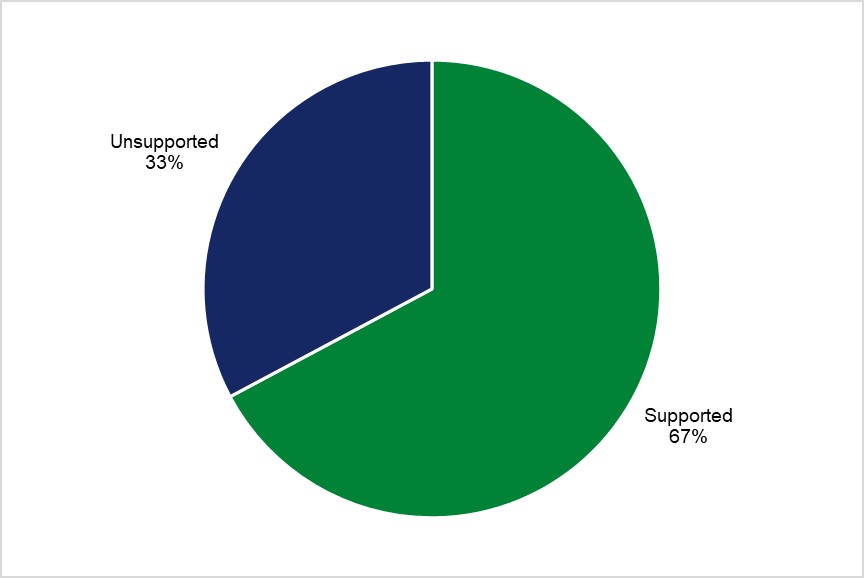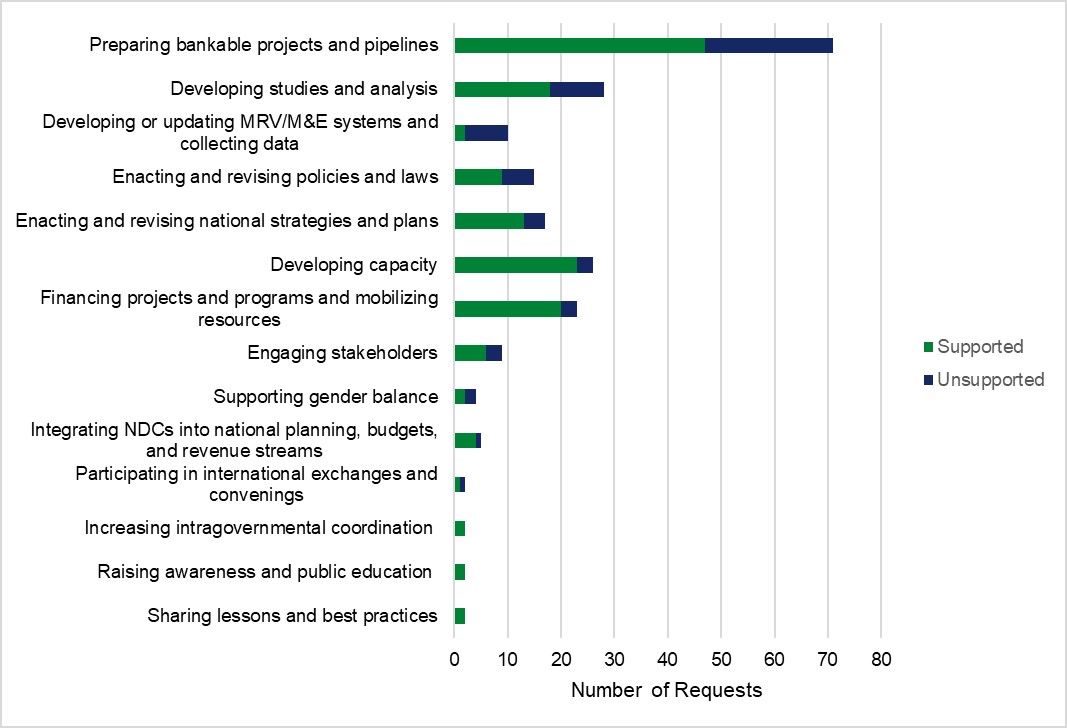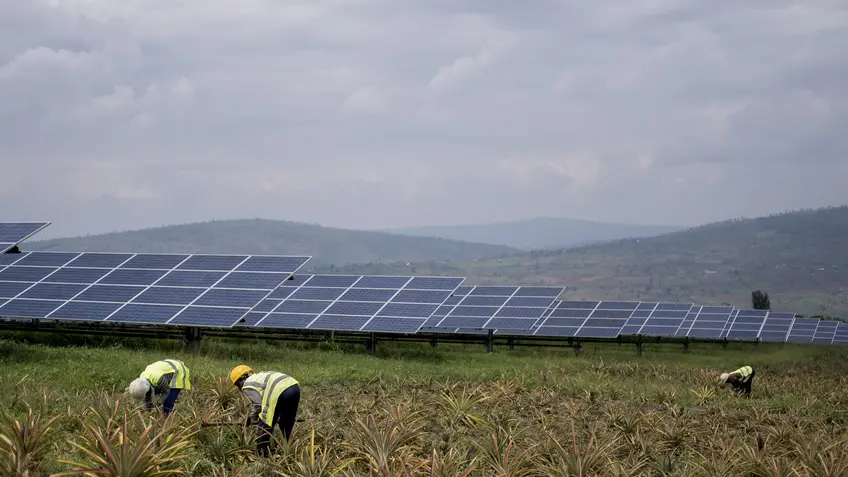NDC Partnership: Facilitating Clean Energy Transitions in Sub-Saharan Africa
Africa’s growing population will see energy demand doubled by 2040. As national power grids struggle to keep pace, accelerating the transition to and deployment of a sustainable energy infrastructure across Sub-Saharan Africa is a key priority for stakeholders in the region. Adopting sustainable energy in Sub-Saharan Africa can bolster economic growth and improve livelihoods with benefits in health, employment, education, gender equality, and environment.
In short, attaining Sustainable Development Goals (SDGs) in Sub-Saharan Africa is inextricably linked to expanding access to clean energy. The political movement to transition to cleaner, more renewable energy sources is gaining momentum across the continent, despite the health and economic consequences of the COVID-19 pandemic.
Regarding Nationally Determined Contributions (NDCs)—national climate plans to reduce national emissions and adapt to climate change impacts—African countries are walking the talk, with 45 out of 53 African NDCs containing quantified renewable energy targets.
While countries were expected to submit more ambitious NDCs in 2020, disruptions caused by the COVID-19 pandemic pushed many submissions until 2021. In their 2020 updated NDCs, African countries continue referencing clean energy transitions. However, African countries require policies and financing to achieve their full renewable energy potential, including doubling the current average annual investments in the African energy system to approximately USD40-65 billion by 2030.
The NDC Partnership received 189 requests related to energy access, affordability, efficiency, and renewability from 17 countries in the Sub-Saharan Africa region. Of these requests, 67 percent (127 of 189) receive support from implementing and development partners.

Figure 1: Support for clean energy transition requests from Sub-Saharan Africa
A successful clean energy transition in Sub-Saharan Africa requires solid investment frameworks that will be central to the deployment of clean energy infrastructure. Despite significant progress, gaps remain in requested support. Almost 40 percent of unsupported requests are for preparing bankable projects and pipelines. These requests indicate a need to strengthen government capacity to conduct the feasibility assessments needed to develop a portfolio of bankable projects for potential investment, or a need for financial structures to address funding gaps that must be filled before identified projects can begin implementation.

Figure 2: Support for clean energy transition requests from Sub-Saharan Africa by activity type
Examples of Clean Energy Transition in Member Countries
Rwanda, the first African country to submit an updated 2020 NDC, is displacing GHG emissions from fossil fuel power generation and expanding energy access to areas not served by the national grid. Rwanda intends to add more than 150 MW of hydro capacity to the grid and install 68 MWp of solar mini-grids in rural areas by 2030.
Through its NDC implementation plan, Rwanda is making efforts to ensure that no community is left behind in energy access and electrification, with plans to connect 52 percent of households to the grid and 48 percent of households to off-grid electricity. Rwanda seeks to accelerate private sector investments in affordable mini-grids and solar home systems for low-income households.
The NDC Partnership recently developed a Project Information Note (PIN) to develop 100 renewable energy mini-grid projects (hydro and solar) though a holistic approach that removes market-entry barriers to attract the private sector. For example, it streamlines the regulatory procedure by developing a one-stop shop for mini-grids, improves stakeholder engagement, provides incentives, builds local capacity, and develops complementary productive use programs to meet energy demand and foster economic development at the mini-grid sites.
South Africa requested NDC Partnership support to implement Just Transition through the Sector Jobs Resilience Plans, a strategy for sectors vulnerable to job losses because of climate change or a transition to alternatives. The country’s National Employment Vulnerability Assessment revealed five value chains—coal, metals, petroleum-based transport, agriculture, and tourism—that are particularly vulnerable to climate change impacts and policies for mitigating climate change.
Coal has been a major South African economic driver for decades, providing electricity, revenue, and jobs. In transitioning to a low carbon, climate-resilient economy, South Africa ensures the resulting social and economic burdens are not shifted onto vulnerable communities. Innovative solutions include using recycled waste products from coal combustion, like fly ash, to create new jobs and sustain livelihoods, and repurposing old coal mines for agricultural purposes. NDC Partnership members supporting South Africa’s Just Transition request include Conservation International, the European Commission, Germany, Netherlands, the United Kingdom, the World Bank, and the World Resources Institute.
Nigeria, Africa’s largest economy and most populous country with more than 200 million people, revealed an ambitious renewable energy plan in its Economic Sustainability Plan for COVID-19 recovery. The country plans to install five million solar home systems, serving about 25 million Nigerians who are currently not connected to the national grid, while creating 250,000 jobs in the process by 2023. This plan is aligned with the country’s energy strategy in its NDC, to “…expand sustainable energy sources and decentralize transmission…” and work toward off-grid solar PV of 13GW (13,000MW).
Through the NDC Partnership’s Climate Action Enhancement Package (CAEP)—a short-term initiative to provide fast, targeted NDC enhancement support to member countries—Deutsche Gesellschaft für Internationale Zusammenarbeit (GIZ) implemented an investment analysis of solar mini-grids in Nigeria to support the NDC revision process. The analysis developed a roadmap for electrification using off-grid solar mini-grids by 2030, offsetting the use of fossil fuel generators for local energy access.
As Sub-Saharan African countries increasingly elevate clean energy transitions to national priorities and request support in this area, the NDC Partnership will continue to match countries with technical assistance and financial support to meet their clean energy needs. Sustainable energy will unlock new levels of prosperity and socio-economic benefits across the region; the Partnership remains committed to supporting the mobilization of investments needed for an equitable clean energy transition.
This blog was written by Chiagozie Obuekwe with valuable input from Rob Bradley, John Heermans, and Thibaud Voita of the NDC Partnership Support Unit.
